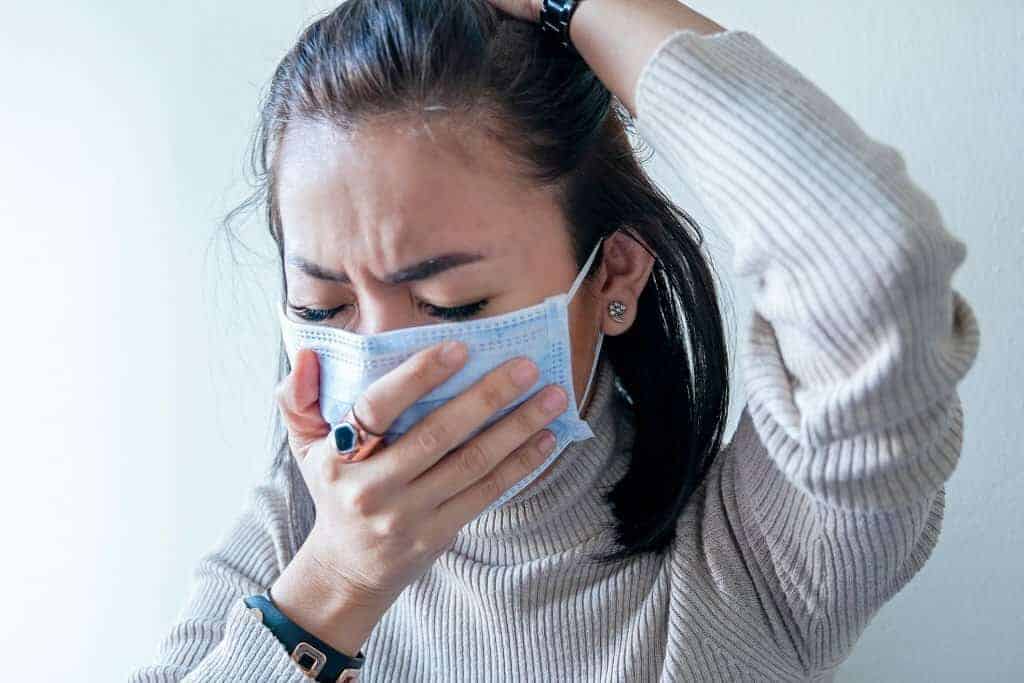11 Best Ways to Reduce Cough and Headache in (2022)

Do you suffer from frequent cough & headache? If so, you’re not alone. Many people experience these symptoms on a regular basis. In this blog post, we will discuss 11 steps that can help reduce the severity of your coughs and headaches. We will also explore some natural remedies that have been proven to be effective in reducing these symptoms. So, if you’re looking for ways to feel better, read on!
Step #01: Drink Plenty of Fluids
Drinking plenty of fluids is one of the simplest and most effective steps you can take to reduce both your coughs and headaches. When you’re dehydrated, it’s difficult for your body to fight off infection or inflammation. So, make sure to drink plenty of water, juice, and herbal tea throughout the day.
Step #02: Get Plenty of Rest
Rest is essential for your body to heal. When you’re well-rested, your immune system is better able to fight off infection and inflammation. So, if you’re suffering from a cough or headache, make sure to get plenty of rest. Go to bed early and take frequent naps throughout the day if needed.
Step #03: Use a Humidifier
If you live in a dry climate, using a humidifier can be helpful in reducing your coughs and headaches. A humidifier adds moisture to the air, which can help soothe your throat and sinuses. It can also help relieve congestion and dryness in the airways, which can aggravate your cough and headache.
Step #04: Take Over-the-Counter Pain Relievers
If you’re experiencing pain as a result of your cough or headache, taking over-the-counter pain relievers can be helpful. There are many different types of pain relievers available, so be sure to talk to your doctor or pharmacist about which one is right for you.
Step #05: Use a Cold Compress
A cold compress can be helpful in reducing the inflammation and pain associated with a cough or headache. Simply wrap a cold pack or ice cube in a towel and apply it to the affected area for a few minutes. Repeat as needed.
Step #06: Take Nasal Decongestants
If you’re congested, taking nasal decongestants can be helpful in reducing your cough and headache. Nasal decongestants help to clear congestion by narrowing the blood vessels in the nose. Be sure to follow the directions on the package and talk to your doctor or pharmacist if you have any questions.
Step #07: Drink Herbal Tea
Drinking herbal tea can be a soothing and effective way to reduce your cough or headache. There are many different types of herbal teas available, so be sure to choose one that is right for you. Teas containing ginger, chamomile, and lavender are all known to be helpful in reducing coughs and headaches.
Step #08: Use a Vapor Rub
A vapor rub can be a helpful tool in reducing the symptoms of a cough or headache. It works by releasing menthol, which helps to soothe the throat and sinuses. Be sure to follow the directions on the package and talk to your doctor or pharmacist if you have any questions.
Step #09: Avoid Irritants
If you’re suffering from a cough or headache, it’s important to avoid anything that might aggravate your symptoms. This includes cigarette smoke, fumes, and strong odours. Try to stay in a well-ventilated area and avoid exposure to these irritants as much as possible.
Step #010: Take Antihistamines
If you’re experiencing allergy symptoms along with your cough or headache, taking antihistamines can be helpful. Antihistamines work by blocking the histamine response, which can help to reduce congestion, runny nose, and sneezing. Be sure to follow the directions on the package and talk to your doctor or pharmacist if you have any questions.
Step #011: See Your Doctor
If your cough or headache is severe, persists for more than a few days, or is accompanied by other symptoms, it’s important to see your doctor. There may be an underlying cause that requires treatment. Don’t try to self-treat a serious cough or headache – let your doctor help you find the best solution for you.
Conclusion:
When it comes to reducing coughs and headaches, these natural remedies can be effective and safe. Be sure to talk to your doctor before trying any of these treatments, especially if you’re pregnant or breastfeeding. With a little trial and error, you should be able to find a treatment that works for you. And remember – get plenty of rest! Your body needs it to heal.
FAQS – Frequently Asked Questions
What are coughs and headaches?
A cough and headaches are a type of headaches that are caused by a cough. It is rare but can happen. The pain is usually located in the forehead and can be severe.
What is the difference between a cough and a headache?
A cough is an often reflexive action to clear the airways of fluids, mucus, or foreign bodies. A headache, on the other hand, is a pain that occurs in the head or upper neck. It can be due to many different causes, including stress, dehydration, and infection.
What should I do if I have a cough headache?
If you have a cough headache, you should see your doctor. He or she can determine what is causing the headache and may be able to prescribe medication to help relieve the pain.
Can a cough headache be treated?
Yes, a cough headache can be treated. Treatment will vary depending on the cause of the headache but may include medications such as painkillers or anti-inflammatory drugs. Surgery may also be an option in some cases.
What are the risks of having a cough headache?
The risks of having a cough headache vary depending on the cause. However, in some cases, the headache may be a sign of a more serious problem, such as a brain tumor. It is important to seek medical attention if you experience a cough headache.
Can coughs and headaches be prevented?
There is no known way to prevent a cough headache. However, if you know that you are prone to them, you may be able to take steps to reduce your risk of getting one, such as avoiding strenuous activity when you have a cold or the flu.
What are the symptoms of cough & headache?
The symptoms of cough & headache vary depending on the cause. However, common symptoms may include a severe headache, pain in the forehead, and a cough.
Can coughs and headaches be fatal?
No, a cough headache is not fatal. However, it can be a sign of a more serious problem, such as a brain tumor, so it is important to seek medical attention if you experience one.
What are the causes of coughs and headaches?
The cause of a cough and headaches can vary depending on the individual. However, common causes may include a cold or the flu, a nasal infection, or a sinus infection. Some cases may be due to a problem with the brain, such as a tumor.
Is there any way to prevent coughs and headaches?
There is no known way to prevent coughs and headaches. However, if you know that you are prone to them, you may be able to take steps to reduce your risk of getting one, such as avoiding strenuous activity when you have a cold or the flu.
What are the risks of having coughs and headaches?
The risks of having a cough headache vary depending on the cause. However, in some cases, the headache may be a sign of a more serious problem, such as a brain tumour. It is important to seek medical attention if you experience a cough headache.
More great articles that may be of interest to you 🙂
Guided Meditation for Healing: Benefits, How To Do This, FAQS



